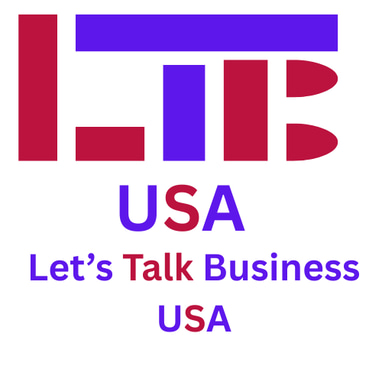What are the alternatives available if you are denied an SBA 7(a) loan?
FINANCE

Many businesses don't qualify for an SBA loan, but that doesn't mean there aren't other financing options available to you.
Once you understand the reasons why your application was rejected, you can apply again, improving your chances while exploring other types of business loans to evaluate the available options.
What are the alternatives available if you are denied an SBA 7(a) loan?
If your application for an SBA 7(a) loan is denied, you're not alone. The U.S. Small Business Administration (SBA) regularly rejects a large number of applications, demonstrating the strict policy enforcement and extremely stringent requirements required to obtain this type of loan.
What can you do next?
1.- Find out the reasons why you were denied
The lender must provide you with an explanation for its decision. In addition to the SBA requirements, the lender may have additional requirements that must be met to obtain the loan.
There are a variety of reasons why your application may be rejected: business size, cash flow, and other factors can play a role in loan disapproval.
If the explanation you receive doesn't satisfy you, you can contact the lender for more information.
These are some of the more common reasons:
Credit
Although the SBA doesn't set a minimum credit score, lenders typically do. Both the individual and the business must meet a certain minimum credit record to qualify.
Many lenders use the "5 Cs of Credit" method, which includes repayment capacity and the economic conditions of the specific industry in which the business operates.
Business Size
The business must meet the SBA's definition of a small business. Some requirements include meeting minimum revenue and having fewer than 500 employees. However, these requirements will depend on the industry in which the business operates.
The lender may also have specific requirements that it is wise to be aware of.
cash Flow
The business must generate sufficient cash flow to make the monthly principal and interest payments on the loan.
It's important to know the average loan amount approved by the SBA and not try to borrow more than the company can afford.
It's also a good idea to conduct a business cash flow analysis to determine if there's enough financial room to handle the loan repayments, whether to apply for this type of loan or explore other financing alternatives.
Type of Industry
The SBA doesn't work with businesses in all industries. Unfortunately, if your business operates in any of the excluded industries, it won't qualify for this type of loan.
These are the excluded industries:
• Real estate investment firms
• Businesses involved in speculative activities
• Lenders, banks, finance companies and insurance companies
• Multi-level sales or distribution companies
• gambling, excluding lottery sales and state-regulated gambling
• Charities, religious organizations, and others dependent on charity
Additionally, any business that operates illegally or is involved in any illegal activity.
Finance
The SBA requires that the owner has invested sufficient capital in the business and has exhausted all other financing options before applying for SBA loans.
This means you should consider applying for a business loan through a bank or other lending institution before considering qualifying for an SBA loan.
On the other hand, SBA loans do not require a personal guarantee, as part of the loan is guaranteed by the U.S. government.
In addition to the SBA requirements, lenders typically have additional sales and revenue requirements, rather than minimum requirements.
For example, if you apply for an SBA 504 loan at Bank of America, your business cannot have more than $5 million in after-tax revenue over the past two years.
Another important aspect of qualifying for an SBA loan is demonstrating the ability to repay the debt. To that end, the potential lender will want to evaluate your business's debts, sales, and revenue.
If you apply for an SBA 504 loan, you must budget a 10% down payment.
Location
The business must be located in the United States and operate for profit to qualify for an SBA loan. It must be properly registered with the state and/or municipality where it operates, with a valid business license.
2.-Consider Reapplying
If the reason for your loan rejection is a situation you can resolve, your business may be welcome to reapply. There is a waiting period between applications, but you can take advantage of it to improve your situation and increase your chances of being approved.
Some actions to take include improving your credit history, improving cash flow, and building your personal capital in the business, all of which can positively impact your eligibility:
• Credit History. SBA lenders will check both your personal and business credit. If you can, try to improve these numbers by lowering your personal credit utilization ratio or looking for other alternatives while you wait to reapply.
• Cash Flow. Although the SBA doesn't have any minimum income or cash flow requirements, your lender most likely will. Even if they don't, your cash flow must be sufficient to cover the cost of the loan, in addition to the business's ongoing expenses.
• Personal Capital. The SBA requires each owner to invest a certain amount of personal capital into the business. If you have access to personal assets or other financial resources, determine whether they can be used to finance your business before applying again.
• Documentation. Once you're ready to reapply, carefully review the documents required by both the SBA and the lender and make sure they're completed correctly and without errors.
3.-Explore other financing alternatives
Even if you plan to apply again, you should consider other options. Between the 90-day waiting period and the SBA application process, it can take much longer than three months to obtain financing.
Even for businesses that don't qualify for an SBA loan, there are some alternatives that may be interesting for obtaining financing:
• Online Loans. For some small businesses, alternative business loans like these may be easier to obtain. The requirements are usually less strict, but they may have higher interest rates and fees.
•Bank Loans. Banks are a traditional source of business financing, and most offer these types of loans. Requirements are typically stricter than those of the SBA, but interest rates tend to be very competitive.
If you apply for an SBA loan with a traditional bank and are rejected, the same bank may offer you another type of loan that better suits your situation and needs.
• Bad Credit Loans. If the main reason for denying your application was your poor credit history and you urgently need funds, you can consider a Bad Credit Loan. Although the interest rate may be higher with a shorter repayment term, it can give you quick access to funds and improve your credit history if you make payments on time.
• Business Credit Cards. If your business frequently has minor expenses, you might consider this type of card.
• Lines of credit. Similar to business credit cards, business lines of credit offer flexibility for frequent, minor expenses and tend to have lower rates than credit cards.
• Grants. Businesses involved in public service or nonprofit organizations that don't qualify for SBA loans can apply for grants that don't need to be repaid. There are hundreds of grant programs for minorities and specific fields. It's difficult to obtain them, but it's advisable to apply to all the ones you qualify for.
• Crowdfunding. This is a very popular option right now. There are several online sites you can use. In this article, we present the most popular ones.
• Personal Loans. If you haven't started your business or have been operating for less than a year, you might consider a personal loan as an alternative to financing your business.
• Merchant Cash Advance (MCA) from your Credit Card Provider. MCAs are easy to obtain and can provide you with cash advances based on future debit and credit card sales. They are actually advances on cash the business will generate in the future. The rates and fees are significantly higher than other options, but the approval and disbursement process is very fast.
Summary
Many businesses don't qualify for an SBA loan, but that doesn't mean there aren't other financing options available to you.
Once you understand the reasons why your application was rejected, you can apply again, improving your chances while exploring other types of business loans to evaluate the available options.
You may find both a lender and a program that's right for your business.
